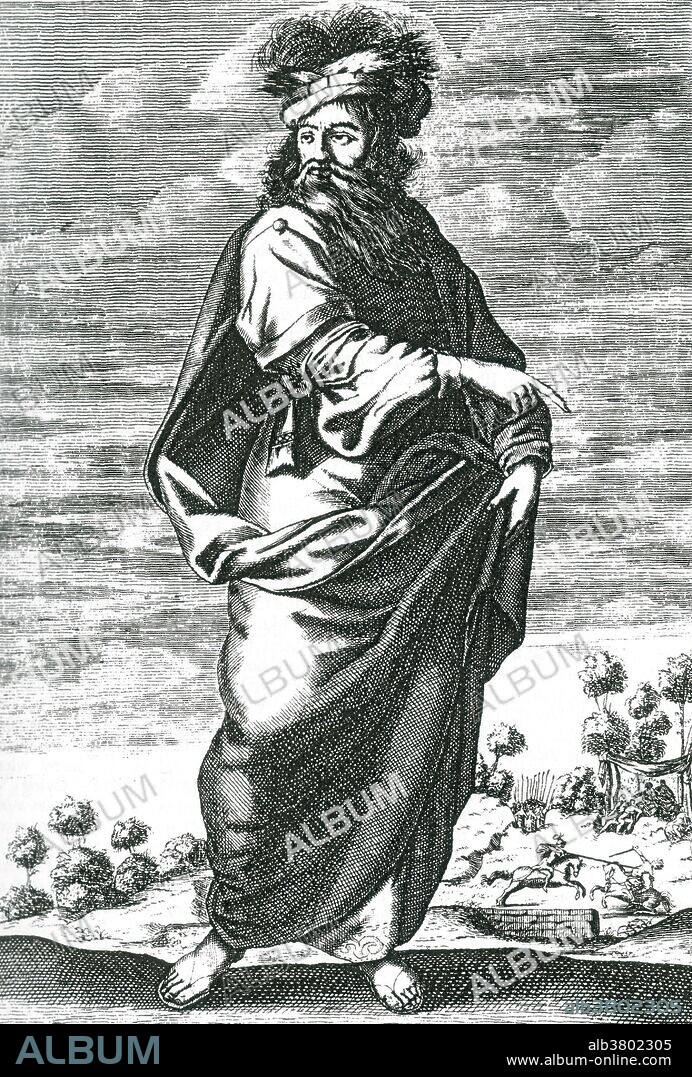alb3802305
Chilon of Sparta, Sage of Greece

|
Ajouter à une autre Lightbox |
|
Ajouter à une autre Lightbox |



Avez-vous déjà un compte? S'identifier
Vous n'avez pas de compte ? S'inscrire
Acheter cette image

Titre:
Chilon of Sparta, Sage of Greece
Légende:
Voir la traduction automatique
Chilon of Sparta (6th century BC) was one of the Seven Sages of Greece. In his elder years, he became instrumental in the political reorganization of Sparta. Through his machinations, the Ephors gained more power in order to check the Kings by linking an Ephor as watcher over the Kings' generalship in time of war. He is credited with laying the groundwork for the Peloponnesian League created through a treaty with Tegea. While the Athenians contended that women were permanent children with brains incapable of developing rational thought, Sparta's greatest philosopher encouraged his daughter to study under Pythagoras, the greatest of his contemporaries. He was also a poet who wrote a great number of elegiac verses. He was known for his laconic wit, and his belief in prudence, self-restraint, and careful judgment. "Think before you speak", "Do not speak evil of the dead" and "Know thyself" are a few of the saying credited to him. Legend claims that he died of joy when his son gained the prize for boxing at the Olympic games, and that his funeral was attended by all the Greeks assembled at the festival. Engraving from "The History of Philosophy" by Thomas Stanley published in three successive volumes between 1655 and 1661.
Personnalités:
Crédit:
Album / Science Source
Autorisations:
Modèle: Non - Propriété: Non
Questions sur les droits?
Questions sur les droits?
Taille de l'image:
2838 x 4200 px | 34.1 MB
Taille d'impression:
24.0 x 35.6 cm | 9.5 x 14.0 in (300 dpi)
Mots clés:
CÉLÈBRE • CELEBRITE • CHILON OF SPARTA • HOMME • ILLUSTRATION • PERSONNAGES • PERSONNALITÉS • PERSONNE • PHILOSOPHIE • PORTAIT • PORTRAIT • POTRAIT • SCIENCE: PHILOSOPHIE
 Pinterest
Pinterest Twitter
Twitter Facebook
Facebook Copier le lien
Copier le lien Email
Email
